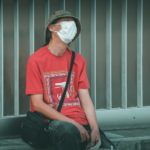 There has long been a suspicion that the Covid-19 pandemic has had a very unequal impact across society, with ethnic minorities more likely to suffer the health implications, and the poor more likely to suffer the economic implications. New research from Washington University in St. Louis suggests things are even worse than feared.
There has long been a suspicion that the Covid-19 pandemic has had a very unequal impact across society, with ethnic minorities more likely to suffer the health implications, and the poor more likely to suffer the economic implications. New research from Washington University in St. Louis suggests things are even worse than feared.
Their study of the socioeconomic impact of the virus found that wealth, as determined by one’s liquid assets, significantly affected the chances that you would engage in social distancing measures.
“Social distancing is a privilege that comes with resources and wealth, but wealth is not distributed equally in America,” the researchers say. “Wealth gives individuals agency to make choices, like social distancing, that keep themselves and their families healthy.”
Unequal risk
The researchers interviewed several thousand people from all 50 American states during the pandemic, and found that black households had a harder time abiding by social distancing guidelines than their white peers, due in large part to the need to earn money.
“Lower liquid assets leave people in a position of choosing income over social distance safety,” the researchers say. “As money increases, affordability to social distance increases.”
The survey also revealed that low income households would also commonly defer any major outgoing costs in areas such as health care and housing, which led to a higher risk of evictions, especially among Hispanic households. Hispanic individuals were also disproportionately affected by job losses, with gig workers also suffering, as 86% of gig workers reported a significant fall in their income, which was having a big impact on their household budget.
“While it’s too early to draw conclusions about long-term impacts of the virus, we know that it’s exacerbating situations for households already experiencing financial vulnerability, wealth inequalities and health inequities,” the researchers explain. “Understanding the wealth gap is important, but more critically we need to design policies that enable people to build wealth as the economy recovers.”
Discrimination on the rise
What’s more, a second study, from the University of Southern California, highlighted the racial nature of discrimination during the pandemic. The research found that in the early stages of the pandemic, around 11% of Asians and 9% of African Americans had experienced covid-related discrimination, due mainly to people believing them to have the virus. This rapidly grew to 16% of Asians and 15% of African Americans by April.
“The early spike in the percentage of people who experienced COVID-related discrimination was attributable – in part – to discriminatory reactions to the growing number of people wearing masks or face coverings at the early stage of the pandemic,” the researchers say.
Due to the origins of the virus, Asian Americans were the first racial/ethnic group to suffer from discrimination, closely followed by African Americans. The researchers suggest that the cultural practice of mask wearing among Asians perhaps contributed to the discrimination they suffered.
For African Americans, the rise in discrimination is linked to the disproportionate vulnerability to the virus among this group. Sadly, the wearing of masks seems to be strongly linked with discrimination, especially in the early months when mask wearing was rare.
“In March, before widespread stay-at-home orders and when mask-wearing was rare, people wearing masks were more likely to experience discrimination,” the researchers explain. “In April, only the frontline workers who wore masks had higher risks of experiencing discrimination.”
Unsurprisingly, this experience of discrimination was linked with increased anxiety and depression, which the researchers believe chimes with previous research into the poorer mental health experienced by many racial/ethnic minorities.
“The relationship between COVID-related discrimination and worsening anxiety and depression is particularly pertinent during this pandemic, as it compounds mental health distress attributable to concerns of disease spread, social restrictions, and financial stress,” they say.